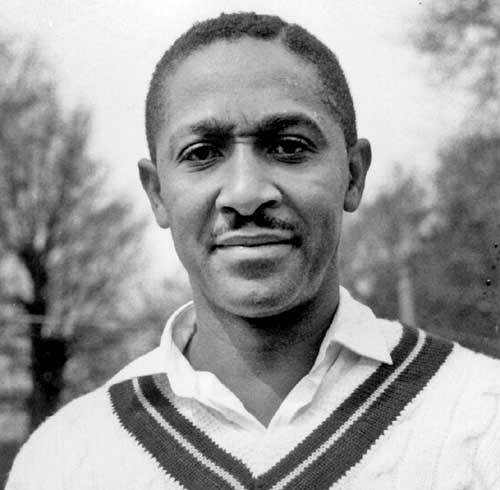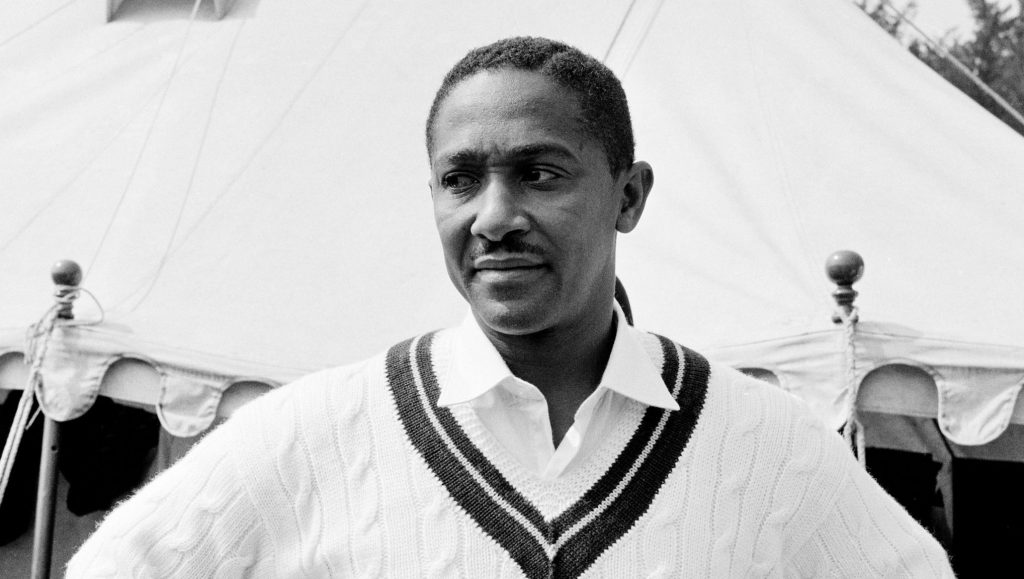When Frank Worrell assumed West Indies’ captaincy in 1960, he stewarded cultural reconciliation on-field while pioneering strategic innovations that catalyzed Caribbean cricket ascendancy for decades henceforth.
But beyond symbolic leadership shone still brighter gifts – elegant batsmanship and shrewd tactical nucleus holistically uplifting the sporting realm.
At the crease, Worrell carved poetry through exquisite timing and placement that tired attacks despite seeming effortlessness. Yet later as coach, manager and ambassador, his diplomatic touch proved equally fatigue-inducing to prejudice.
Integrating communities required the same finesse as bisecting covers. Tactically too Worrell brought measured aggression and nurtured supreme talents like Sobers to bloom as their conduits to excellence.
Article Highlights
Hide- Frank Worrell was born in Barbados in 1924 and had a modest upbringing, but his education at Combermere School helped him develop discipline, strategy, and a deep understanding of the game of cricket.
- Worrell's exceptional technique and flair with the bat earned him international recognition, and he became part of the legendary 'Three Ws' trio that dominated international cricket.
- As the first black cricketer to permanently lead the West Indies team, Worrell's strategic acumen prioritized psychological resilience and cohesion, leading to significant successes, including a thrilling tie against Australia in 1960-61.
- Worrell's legacy extends beyond his statistical achievements, as he played a transformative role in West Indies cricket, elevating the team's performance, transforming their mindset and approach, and inspiring future generations of cricketers.
However as post-playing veneration reveals, Sir Frank Worrell’s name towers over cricket for integrating much more than rosters. Through dignified resilience he aligned principles and progress.
That became his lasting legacy as pioneer and reconciler – deploying sport as society’s unifying force by recognizing human spirit beyond physical traits. To West Indians, he remains the best of them.
Early Life and Education
Frank Worrell’s formative years were marked by a modest upbringing in Barbados, where he was born on August 1, 1924, and where he received his early education that laid the groundwork for his illustrious cricketing career.
In the socio-economic tapestry of Barbados during the early 20th century, opportunities for formal education and subsequent professional advancement were limited, particularly for those of African descent. Nevertheless, Worrell’s natural aptitude allowed him to benefit from the educational resources available to him.
Andy Roberts
When Andy Roberts opened his sinewy run-up from Antigua shorelines, a bowler charged cricket’s ... Read More
At an early age, Worrell attended Combermere School, an institution known for fostering sporting excellence along with academic rigor.
It is here that his cricketing talents were honed. The school provided a structured environment that emphasized discipline, a quality that would later become a hallmark of Worrell’s approach to the sport.
His education also instilled in him a strong sense of strategy and an understanding of the game’s intricacies, which were less tangible but equally critical components of his cricketing intellect.
The nurturing of Worrell’s cricketing prowess, coupled with the academic foundation he received, played a pivotal role in his ascension in the sport.
His early life in Barbados was therefore instrumental in shaping the character and skills of a man who would go on to leave an indelible mark on the world of cricket.
Frank Worrell: Rise to Cricketing Prominence
Building upon the solid foundation of discipline and strategy acquired during his formative years, Worrell rapidly ascended the ranks in the world of cricket, demonstrating a prodigious talent that soon caught the attention of selectors and fans alike.
His rise to cricketing prominence was marked by a series of noteworthy performances that not only showcased his skills but also his leadership potential and sportsmanship, which would later become hallmarks of his storied career.
To capture the essence of Worrell’s ascent in cricket, consider the following key points:
- First-Class Debut: Worrell made his mark in the cricketing world with impressive performances in the domestic circuit, leading to his selection for more prestigious matches.
- International Recognition: His exceptional technique and flair with the bat earned him a spot on the West Indies team, where he quickly became a mainstay.
- Notable Partnerships: Worrell was part of the ‘Three Ws,’ a trio including Everton Weekes and Clyde Walcott, that dominated international cricket.
- Innovative Captaincy: Worrell’s leadership skills were evident early on, with strategic acumen that would revolutionize captaincy in cricket.
- Statistical Milestones: His batting averages and records during this period reflected a player at the peak of his prowess, setting benchmarks for future generations.
An analytical examination of Worrell’s rise underscores a trajectory characterized by technical proficiency, consistent performance, and an intrinsic understanding of the game’s nuances. His early cricketing exploits laid the groundwork for his eventual legendary status in the annals of cricket history.
Captaining the West Indies
Worrell’s tenure as captain of the West Indies cricket team marked a transformative era in which his visionary leadership and tactical ingenuity elevated the regional team to unprecedented heights on the international stage.
His appointment in 1960 as the first black cricketer to permanently lead the West Indies signified a monumental shift in the team’s ethos and its approach to the game.
Worrell’s captaincy, which lasted until 1963, was characterized by a strategic acumen that prioritized psychological resilience and cohesion among players from diverse Caribbean nations.
Analyzed quantitatively, Worrell’s leadership record is impressive; under his guidance, the West Indies won nine Tests out of the fifteen they played, with only five defeats.
His tenure included an iconic series against Australia in 1960-61, which not only ended in a thrilling tie but also won the team international plaudits for their sportsmanship and competitive spirit.
Worrell’s approach to captaincy was analytical and humanistic; he fostered a sense of collective responsibility and focused on developing the individual talents of his players within a unified team framework.
His strategic use of players like Garfield Sobers and Lance Gibbs leveraged their individual skills for team success, exemplifying his nuanced understanding of the synergy between player capabilities and team strategy.
Frank Worrell: Notable Career Milestones
Throughout his illustrious career, Frank Worrell achieved numerous milestones that not only underscored his prowess as a cricketer but also had a lasting impact on the sport’s history.
His career was peppered with significant achievements that not only illustrated his exceptional skill but also his sportsmanship and leadership. These accomplishments are not just statistical highlights but also serve as emblematic reminders of his influence on the game.
- First Black Captain: Worrell became the first full-time black captain of the West Indies, marking a significant step in the sport’s progress towards racial equality.
- Triple-Century Stand: Shared an outstanding second-wicket partnership of 446 runs with Clyde Walcott against England in 1950, setting a world record at the time.
- MCC Spirit of Cricket Award: Posthumously honored with an award that encapsulates his contributions to the ethos of the game.
- Wisden Cricketer of the Year: Recognized as one of the five Wisden Cricketers of the Year in 1951, affirming his status among contemporaries.
- Knighthood: Bestowed with a knighthood for his services to cricket in 1964, exemplifying his stature and the respect he commanded.
Analyzing Worrell’s career through these milestones reveals the depth of his impact, both statistically and culturally, within the realm of cricket.
His achievements are reflective of a player who not only mastered the technical aspects of the game but also understood and embodied its spirit.
Legacy and Statistical Breakdown
Reflecting on Frank Worrell’s career highlights further underscores the enduring impact of his contributions, which can be quantitatively appreciated through a detailed examination of his cricketing statistics and the lasting legacy he left in the sport.
Worrell’s statistical profile is marked by significant achievements, underpinned by a first-class career amassing over 15,000 runs, including 39 centuries, with an average hovering around 54.24. His Test career, albeit shorter, was no less impressive, yielding 3,860 runs at an average of 49.48 across 51 matches.
In the context of his era, these figures are indicative of Worrell’s mastery with the bat, as averages above 50 were rarified accomplishments and reflective of a player’s consistent performance against the highest levels of bowling attacks.
His captaincy record, though not quantifiable through numbers alone, was transformative for West Indies cricket and is often cited as a turning point in the team’s ascent to becoming a dominant force in the international arena.
Worrell’s legacy, therefore, is twofold: the measurable excellence of his playing statistics, which remain benchmarks for aspiring cricketers, and the qualitative shift in leadership and sportsmanship he embodied. His statistical breakdown serves as a testament to an extraordinary career that altered the course of cricket history.
Summary
Sir Frank Worrell’s storied career as a cricketer fundamentally reshaped the sport, both in the Caribbean and internationally. As a captain, his leadership and strategic prowess led to significant victories and a new era of respect for West Indian cricket.
His legacy extends beyond mere statistics, embodying the spirit of sportsmanship and racial unity. Worrell’s contributions to cricket remain a benchmark for excellence and continue to inspire generations of players and fans alike.

















